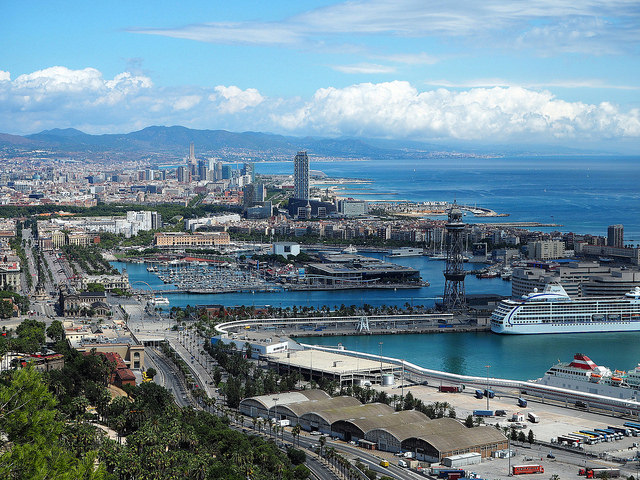Forthcoming local elections in Spain’s North Eastern region of Catalonia on 27th September are being viewed as a de facto opinion poll on a theoretical independence push, though the voting public and business leaders are clearly undivided on the matter.
Catalonia is a relatively prosperous area compared to some parts of Spain though it too has suffered with political corruption issues and a slow economy since the global financial crisis. During this period of austerity a Catalan independence movement has grown louder, yet they have never truly been able to demonstrate that a majority of their population are in favour of independence – the polls swing back and forth.
However, with its own language and a strong cultural identity, some Catalans feel they are not Spanish and they also feel unfairly treated by the central government in Madrid when it comes to taxation and the subsequent re-distribution of wealth.
In short, some Catalans feel they put in more than they get out and some would even prefer to be worse off than be dictated to by the rest of Spain. One major issue that pro-independence Catalan politicians have is that they have been unable to get a clear majority behind them and are unable to form a sensible dialogue with the Spanish government on the matter, though not for lack of trying.
The upcoming elections may change that if the population demonstrates a clear appetite for a split from Spain. Even if the pro-independence parties do gain more power, it is unclear what their way forward will be in legal and constitutional terms.
One key issue is that Catalan businesses have widely varied views on the situation. Some politicians in Barcelona and those aligned with the Catalan president Artur Mas believe Catalonia can split from Spain yet remain within the EU.
British Prime Minister David Cameron ought to be aware of the implications of testing EU legislation given his sometimes choppy relationship with the union, but at a recent press conference with his Spanish counterpart Mariano Rajoy in Madrid he commented, “If part of a state secedes, it’s no longer part of the EU and has to take its place at the back of the queue behind other countries applying to become members. Just like the UK, Spain is a great country with a long and proud history, and if I had a message, it would be the same as the one in the UK, that we are better off together.”
The respected Catalan business group, Foment del Treball, recently noted that a theoretical new independent Catalonia would not be a part of the European Union.
The Chancellor of Germany Angela Merkel also recently expressed similar opinions, whilst U.S. President Barack Obama highlighted his opposition to the ambition of some Catalans to break away, after his talks with Spain’s King Felipe VI on 15th September, stating, “As a matter of foreign policy, we are deeply committed to maintaining a relationship with a strong and unified Spain.”
In response, the pro-independence bloc in Catalonia insist these statements are being provoked by Rajoy and Spanish government to sway sentiment against them. They believe Catalonia, with its industrial past, excellent trade links with Europe, modernised infrastructure and productive micro-economy can survive and prosper without Spain.
The separatists claim an independent Catalonia could have GDP per capita higher than the European average, have lower taxes and more generous pensions. They believe as a nation they could post a surplus of €11.5 billion euros per annum. The autonomous region already produces a fifth of Spain’s economic output.
Clearly no-one can prove that viability before any potential split. Catalonia has no military, relatively little access to natural resources and is highly dependent on the rest of Spain in terms of exports, with over 40% of its trade being with the rest of Spain. Meanwhile the powerful Catalan banking sector relies heavily on business with the rest of the country.
Nonetheless, if the separatist succeed at the ballot box on 27th September president Mas has pledged to create an 18-month roadmap to secession.
Many local business leaders have kept quiet on the issue due to concerns over causing offence to their fellow Catalans or local government. One exception to that trend is the president of Freixenet, Jose Luis Bonet, whose company are a leading producer of sparkling wine.
He recently told AFP, “a unilateral declaration of independence would be a disaster for the Catalan economy.”
In addition this week, statements from Cercle d’Economía, a prominent collective of Catalan businessmen and economists, described their opposition to the proposed roadmap to a unilateral declaration of independence even in the case of a majority in the regional parliament for the separatists.
The Cercle d’Economía acknowledge that they are concerned about the ‘economic, financial and investment’ implication the election result could produce for Catalonia. Their statement read, “As we have said in previous opinions, we do not support unilateral declarations that put the principle of legality and belonging to the European Union and the euro at risk.”



 Bitcoin
Bitcoin  Ethereum
Ethereum  Tether
Tether  XRP
XRP  Solana
Solana  USDC
USDC  TRON
TRON  Cardano
Cardano  Lido Staked Ether
Lido Staked Ether  Avalanche
Avalanche  Toncoin
Toncoin